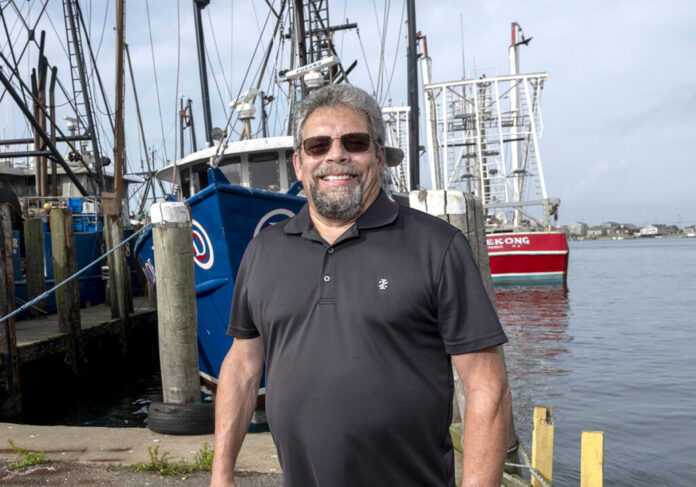
PROVIDENCE – What is the price of loss of livelihood?
This question is at the center of negotiations between local fishing industry representatives and offshore wind developers. And despite recent efforts to strike a better deal, some local fishermen say no number is high enough to justify the devastation they believe the projects will create for their jobs and industry.
The R.I. Coastal Resources Management Council at the urging of Gov. Daniel J. McKee delayed its approval of the South Fork Wind Farm to give developers Orsted A/S and Eversource Energy more time to reach an agreement with the fishing industry, the Associated Press has reported.
The CRMC through its Ocean Special Area Management Plan gets a say in the federal certification process for wind farm projects within a certain distance of the state coastline. Compensation is intended to offset losses from the construction and operation of the projects to the fishing industry.
Previous disputes over compensation for South Fork reached an impasse earlier this year, according to the AP, in part due to differences in which data was being used to evaluate the project’s impact.
“I’ll agree to anything with sound science, but we’re a ways away from sound science,” said Fred Mattera, executive director for the Commercial Fisheries Center of Rhode Island.
Mattera blamed the U.S. Bureau of Ocean Energy Management for the “backwards” process of leasing federal waters for wind projects before completing more comprehensive studies on how the noise, pollution and vessels related to the turbines might change fish spawning and migration patterns.
“Ideally, it would have been nice to tackle these issues of baseline and research prior to any leasing and construction,” said Katie Almeida, a spokesperson for Narragansett-based squid wholesale supplier The Town Dock.
Neither Almeida nor Mattera could name a price for compensation they felt was adequate. Negotiations have largely been behind closed doors, between the Fishermen’s Advisory Board and the developers. Lanny Dellinger, chairman of the board, did not return multiple calls for comment. He previously declined to go into detail on the offer from Orsted and Eversource, the AP reported.
Meaghan Wims, a spokesperson for Orsted, in a statement said “We remain committed to delivering a fair fisheries mitigation package, based on the best data available, to further support South Fork Wind’s co-existence with commercial fishermen.”
Richard Fuka, a squid fisherman and president of the Rhode Island Fishermen’s Alliance, was not optimistic. In his mind, no amount of compensation would be enough to make up for the loss of a crucial part of the state economy. He feared the “calamari comeback” might never happen if these projects move forward.
According to a 2018 study by the Commercial Fisheries Research Foundation, the fishing industry spanned 428 companies in the state, generating 3,147 jobs and $538 million in revenue.
Most of these companies are small businesses, which when going up against major international companies like Orsted creates what Mattera called a David and Goliath situation.
It’s not just South Fork at stake either. Another Eversource-Orsted project known as Revolution Wind is slated for federal waters nearby, and will also require CRMC’s signoff. Meanwhile, the already-approved Vineyard Wind project in Massachusetts has already agreed to a $16.7 million compensation deal, including $4.2 million in direct payments to commercial fishermen in addition to a $12.5 million trust fund.
The payouts help Rhode Island and Massachusetts fishermen, but there are no such benefits for fishermen in other states, even though many also fish in these areas. Other states also get no say in the federal approval process, unlike Rhode Island.
“Rhode Island holds the keys to the kingdom,” said Bonnie Brady, executive director for the Long Island Commercial Fishing Association.
Adding to the concern is whether the CRMC is still a champion for the fishing industry after the retirement of longtime executive director Grover Fugate last year. Fugate was known as a strong advocate for coastal management, leading the agency during its development of the Ocean SAMP and forcing developers to “tow the mark” on environmental mitigation, Mattera said.
Fugate’s predecessor Jeffrey Willis, while also a long-serving member of the agency, is new to the leadership role which drew concern from Mattera and Fuka.
“He’s a babe in the woods,” Fuka said of Willis.
In an emailed response, Willis said the agency was “ensuring that all fishing interests are being considered as offshore wind projects are being reviewed by the agency.”
CRMC has until June 1 to make its decision on the South Fork project.
Nancy Lavin is a PBN staff writer. You may reach her at Lavin@PBN.com.












